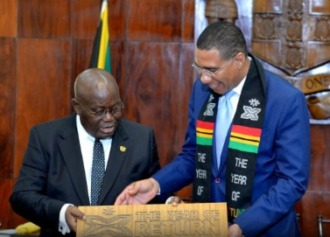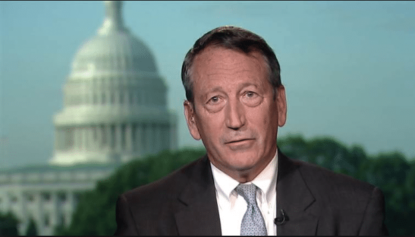KINGSTON, Jamaica – It might sound like the Jamaicanized pronunciation of the number that comes after 79, but Haiti is a historical enigma and its people are a worthy of respect, dignity and even our admiration.
This is the last week in Black History Month, and it is ironic that in the 28 days given to us to come to a better understanding of ourselves, we have figuratively and literally missed the boat regarding the first nation in modern history to have a black government.
The Haitians are not as far from us as one thinks. It is a different experience when one sits or stands aloof and looks at them as boat people stereotyped by pestilence, poverty and a range of other maladies.
However, in fact, contrary to the negative typification, they are far more like Jamaicans than some Jamaicans I know. Haitians speak two languages: an official French for national and international discourse, and Kreyol spoken by the majority, if not the entire population.
Like us, the gap between the official is as wide as “Of course!” “and wah fi enda?”
A former colonial possession, Haiti still has this dalliance with things European and ethnically African.
Notwithstanding that, the Haitians have resolved the issues such as the validity of their native language, the centrality of their native religion. Thus, unlike Deacon Brown or Missionary Samuels who goes to the reader man or surreptitiously procures a bath, the average Haitian has come to terms with these practices in an honest way.
Jamaicans, on the other hand, pretend not to believe in the power of obeah, dismissing it as superstitious but fully accept that good prayers can make a difference. They even suppress the Bible-supported notion that evil spirits and forces are as real as celestial ones.
But back to the similarities. The majority of Africans, captured and enslaved in Haiti, came from the same general regions of West Africa as we did.
Furthermore, the British slave masters also carried on a robust inter-island trade in human capital.
Thus, many Haitians would have also been seasoned, Jamaicanized or Jamaica-born Africans as well. It should not be ignored that Haiti is a mere 150 miles east of no lesser place than St Thomas, a parish with many of the fabled stereotypes.
Haiti’s Creole language is, coincidentally, 90 per cent structurally similar to ours.
In fact, its rhythm is virtually the same as deep-rural Jamaican patois and Twi spoken by Ghanaians.
Bearing responsibility
Though not generally acknowledged, Jamaica has some responsibility for the historical direction that Haiti has taken.
This little piece of Jamrock has influenced, in modern times, American popular culture, the other Anglophone territories, and has redefined African music.
However, in the 1700s, Jamaica, full of African leaders, had the most slave rebellions per capita in the Americas.
The escaped Africans fought the British, who were far less successful than their police imports were in the 2000s, and ground them to a standstill in 1739. Colonel Guthrie offered a peace treaty to Cudjoe and others, and the rest is sociology.
The success of Cudjoe and his Maroon kinfolk did not only inspire Tacky, the Myal warriors and Sam Sharpe but, very importantly, the oppressed Africans in St Domingue (Haiti).
It was Dutty Boukman, an exportee from Jamaica, whose spark ignited the revolution, and it was only after he was murdered that Toussaint became the leader.
Thus, Boukman should really be Boukman L’Ouverture (‘Boukman the opening’). And by the way, he was called Boukman because of his predilection for reading, and the Dutty has the same meaning it does today.
Read more: By Orville Taylor, Jamaica-gleaner


